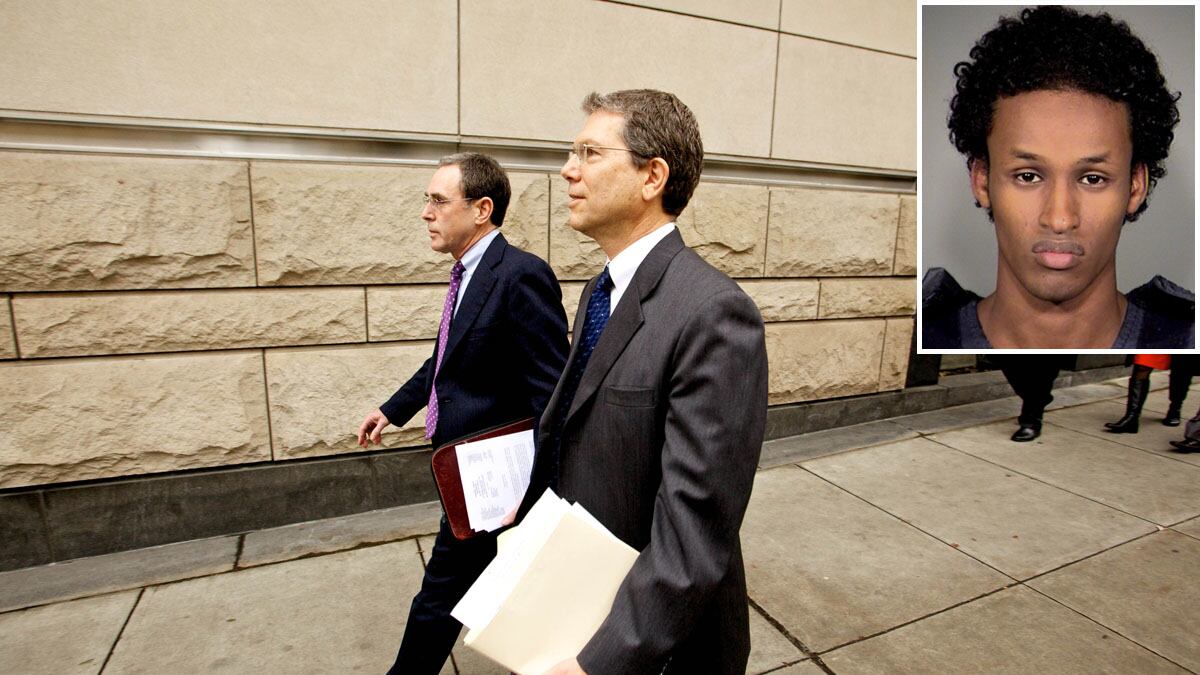PORTLAND, Ore.—Back in the summer of 2010, an on-again, off-again student at Oregon Student University named Mohamed Mohamud had plans to go fishing in Alaska and to go back to school full time after that. He was broke, and a friend had lined up jobs for the both of them.
Mohamud had broken off contact with an FBI agent known now by the nom de plume “Bill Smith,” backing away from the damning communications the two had engaged in since the government first learned the naturalized citizen had tried to reach out to a Pakistani operative believed to be linked to terrorism. Mohamud was off to go fishing.
The trip never happened, and his attorneys believe that the reason is key to understanding why Mohamud is now in federal detention, charged with attempting to blow up thousands of holiday revelers at a November 2010 Christmas-tree-lighting ceremony in Portland.
The feds had been investigating Mohamud’s Internet use since he was 17 (he is now 20), his lawyers say, and by the time the boy allegedly began reaching out to terrorist operatives and writing of jihad and martyrdom on the Web, the FBI was determined to snare him. So determined that they guided him to a dastardly plot every step of the way, federal public defender Stephen Sady argued in court this week and in briefs before that. Where Mohamud had a vague idea that he wanted to be a terrorist, Sady said, the FBI gave him an action plan and, eventually, a van stuffed full of fake explosives. When Mohamud wanted out, the government pulled him back in, urging him to help “the brothers.”
"In decision after decision," Sady said in a hearing in federal court this week, "they pushed towards having this occur."

The thwarted Alaska trip is a prime example. Had Mohamud gone fishing, his dreams of jihad might have faded into the ocean, never again to resurface. But he had to cancel that trip because the feds put him on a no-fly list. Ten days later an undercover agent convinced the teenager that it must have been God’s will.
Allah, Smith said, "has good reason for you to stay where you are."
Why the youngster didn’t figure out that being on a no-fly list probably isn’t the best position from which to start planning a terrorist attack is a mystery, but his handlers took care of all the details, his attorneys have argued in trial memorandums. When Mohamud apparently grew reluctant to die as a martyr, they changed the plan to one that would allow him to escape and travel the world instead. When he wound up broke and despondent about his summer job gone bust, they gave him $2,700 in cash so he could get his own apartment, isolated from roommates. Every time he backed off, the FBI reeled him back in.
Entrapment? That’s Mohamud’s only shot in the high-profile case, and the laws as written seem to place the burden of proof on the prosecution, requiring the government to show that Mohamud was disposed to committing a criminal act before being approached by government agents—that it was his idea to blow people to smithereens in Portland two winters ago. Sady claims in a trial brief that the government used “sophisticated efforts to direct the teenager’s actions” and that the FBI first contacted Mohamud six months earlier than it originally reported.
“They had been watching him for a few years, and nothing happened,” said Atlanta criminal-defense attorney Meg Strickler, who isn’t involved in the case but has defended many clients in federal prosecutions. “Only when they pushed did he bite.”
But entrapment isn’t much of a lifeline for Mohamud, Strickler told The Daily Beast; not because it isn’t valid, but because of the politics involved.
“His ship is sunk,” Strickler continued. “In this climate, no judge is going to let this go on a pretrial motion. And if he’s charged with terrorism? Automatic conviction.”
Sady’s trial briefs allude to the possibility that the real reason the FBI went after Mohamud with such vigor is because higher-ups wanted the city of Portland to rejoin a Joint Terrorism Task Force, which it abandoned in 2005 due to concerns about civil liberties. Reporters had copies of the federal charging papers immediately after Mohamud’s arrest, and within months of the case being plastered across the front pages of newspapers all over the country in what Sady called a “sensational splash,” the reluctant city had gotten back into bed with the feds.
Assistant U.S. Attorney Ethan Knight called that allegation a “distraction” in court last week as the two sides battled over discovery, a common salvo in any legal proceeding and a critical one in the defense’s case. Sady claimed that the government is holding back recordings of conversations its agents had with Mohamud in the early days of contact with their target, including statements the youngster made that could provide some clarity about where the idea came from to blow people up in Pioneer Square and how “absolutely committed”—as the U.S. Attorney’s office described it back when the arrest was made—Mohamud was to the plan. Sady also wrote that an FBI agent shredded certain notes because “he believed that notes could be destroyed for national security investigations.”
Knight insisted he’d turned over all material that isn’t classified, which is to say he didn’t turn over any material that is classified, which he is of course barred from specifically discussing in open court because it’s classified, which led Sady to gripe, “We’re operating in the dark here.”
“The feds entrap all the damn time and cover it up one way or the other,” Strickler says. “Where are all of the discussions? Why isn't every single conversation recorded? They’ve mysteriously disappeared. That’s not real good for the government.”
U.S. district court Judge Garr King sided at times with the defense and at other times with the prosecution, ordering the release of all records of conversations between Mohamud and Smith, for example. But in an entrapment defense, it’s the first contact that matters the most, says Strickler. The first meeting with undercover operatives, where it would be clear who initiated what discussions about doing what to whom.
That meeting, the government insists, was not recorded. Someone had accidentally turned on the device hours beforehand, and by the time the meeting started, the batteries were dead.
How convenient.






